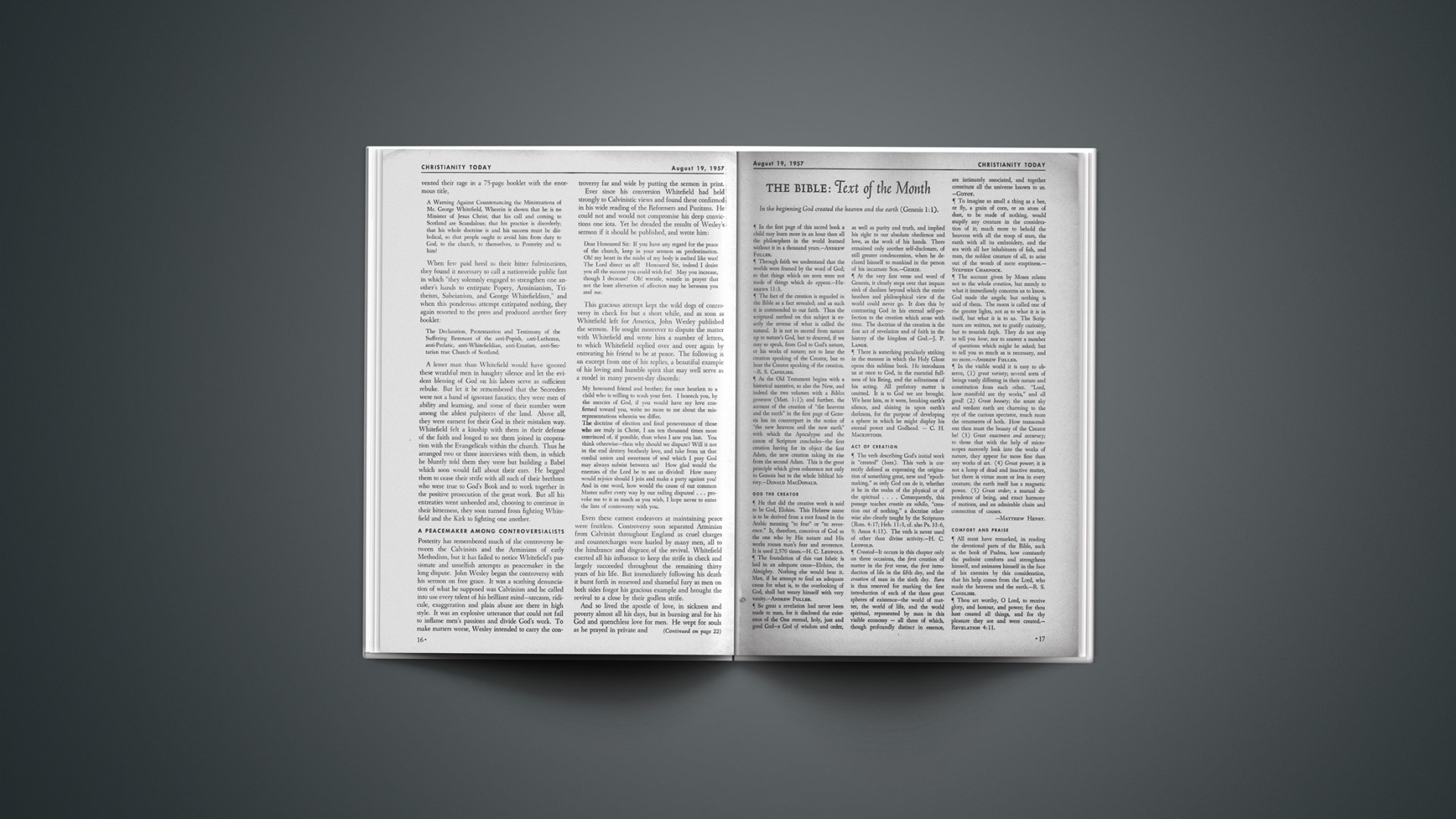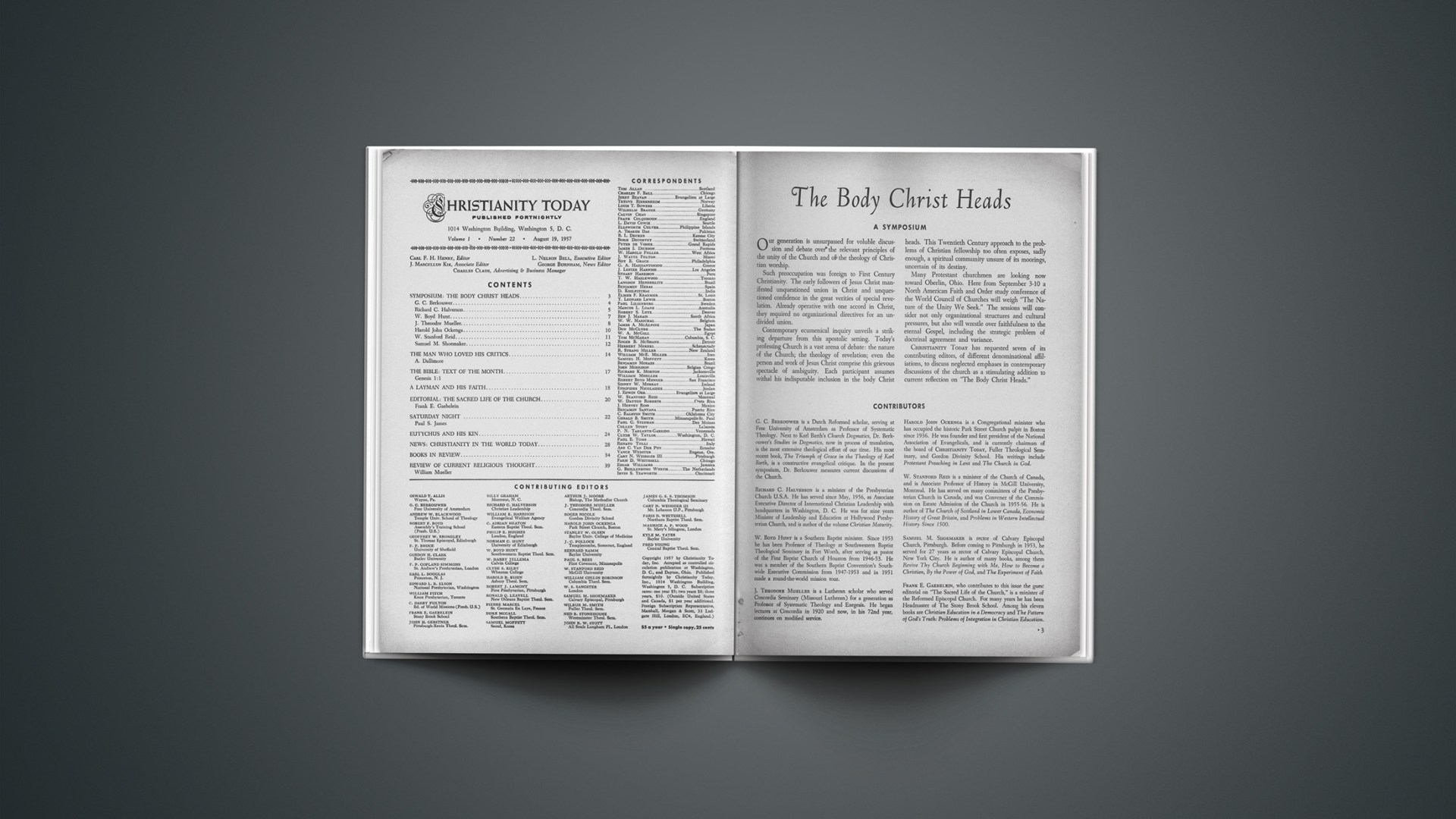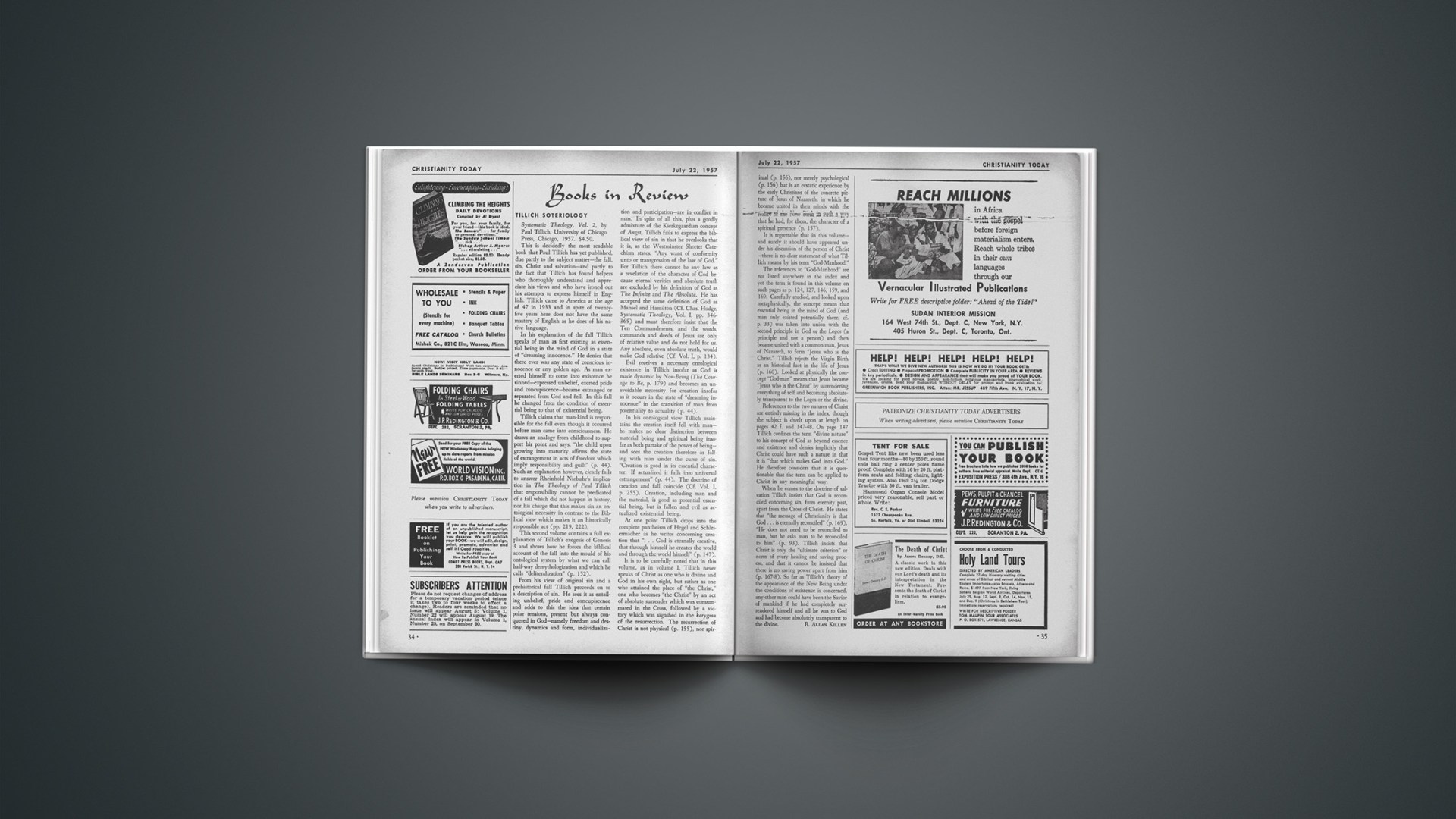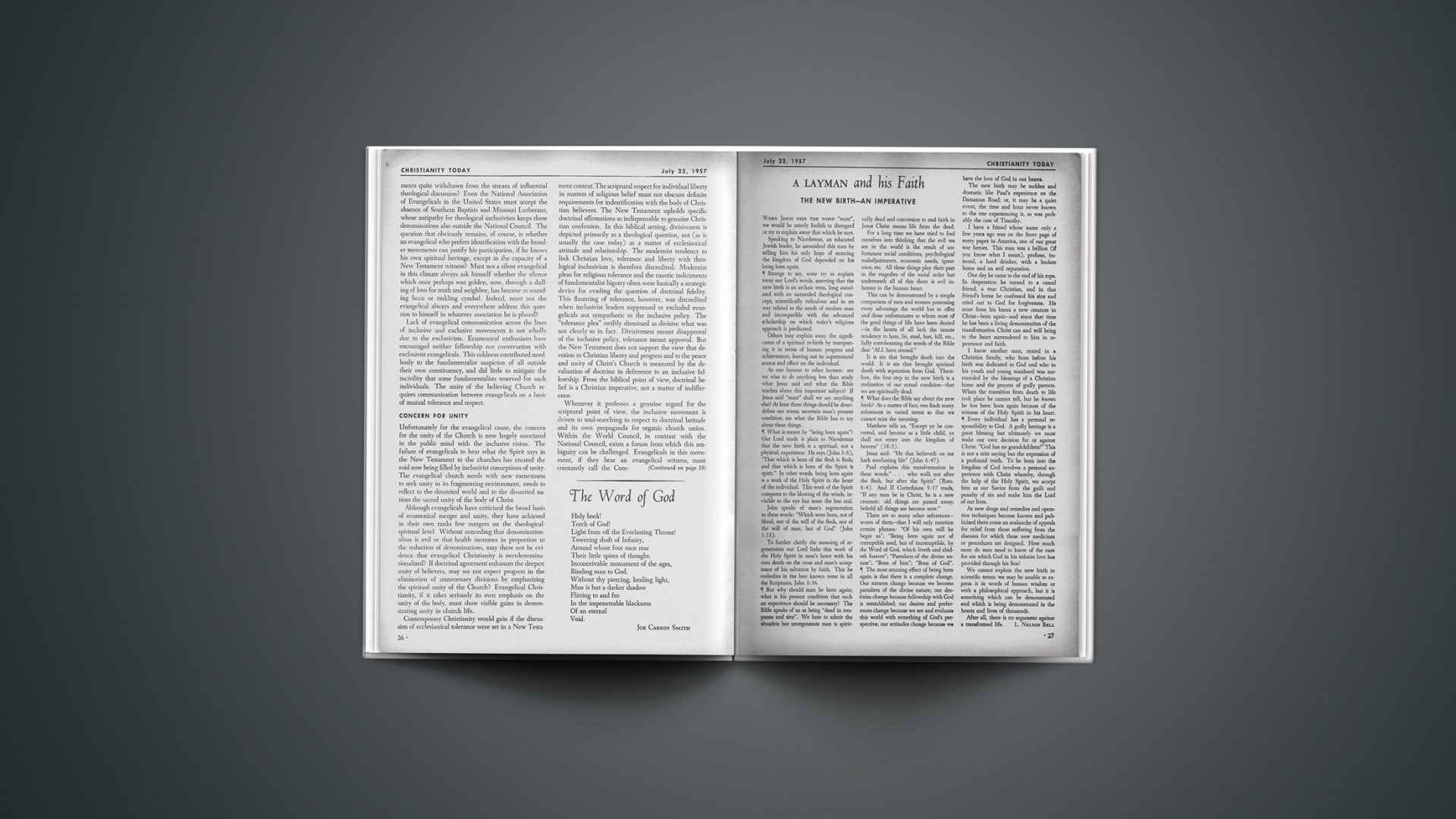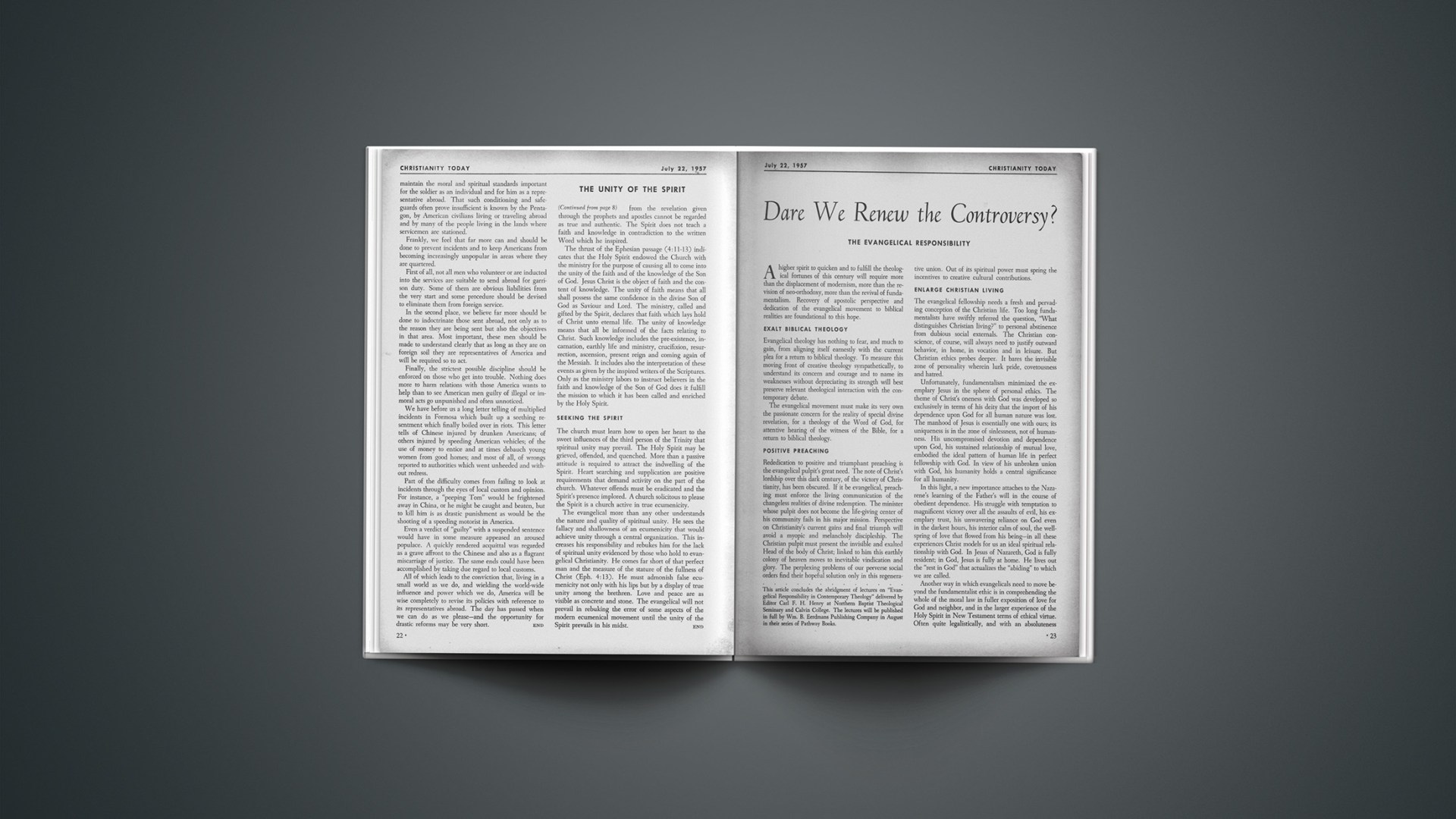In the beginning God created the heaven and the earth (Genesis 1:1).
In the first page of this sacred book a child may learn more in an hour than all the philosophers in the world learned without it in a thousand years.—ANDREW FULLER.
Through faith we understand that the worlds were framed by the word of God; so that things which are seen were not made of things which do appear.—HEBREWS 11:3.
The fact of the creation is regarded in the Bible as a fact revealed; and as such it is commended to our faith. Thus the scriptural method on this subject is exactly the reverse of what is called the natural. It is not to ascend from nature up to nature’s God, but to descend, if we may so speak, from God to God’s nature, or his works of nature; not to hear the creation speaking of the Creator, but to hear the Creator speaking of the creation.—R. S. CANDLISH.
As the Old Testament begins with a historical narrative, so also the New, and indeed the two volumes with a Biblos geneseos (Matt. 1:1); and further, the account of the creation of “the heavens and the earth” in the first page of Genesis has its counterpart in the notice of “the new heavens and the new earth” with which the Apocalypse and the canon of Scripture concludes—the first creation having for its object the first Adam, the new creation taking its rise from the second Adam. This is the great principle which gives coherence not only to Genesis but to the whole biblical history.—DONALD MACDONALD.
God The Creator
He that did the creative work is said to be God, Elohim. This Hebrew name is to be derived from a root found in the Arabic meaning “to fear” or “to reverence.” It, therefore, conceives of God as the one who by His nature and His works rouses man’s fear and reverence. It is used 2,570 times.—H. C. LEUPOLD.
The foundation of this vast fabric is laid in an adequate cause—Elohim, the Almighty. Nothing else would bear it. Man, if he attempt to find an adequate cause for what is, to the overlooking of God, shall but weary himself with very vanity.—ANDREW FULLER.
So great a revelation had never been made to man, for it disclosed the existence of the One eternal, holy, just and good God—a God of wisdom and order, as well as purity and truth, and implied his right to our absolute obedience and love, as the work of his hands. There remained only another self-disclosure, of still greater condescension, when he declared himself to mankind in the person of his incarnate Son.—GEIKIE.
At the very first verse and word of Genesis, it clearly steps over that impure sink of dualism beyond which the entire heathen and philosophical view of the world could never go. It does this by contrasting God in his eternal self-perfection to the creation which arose with time. The doctrine of the creation is the first act of revelation and of faith in the history of the kingdom of God.—J. P. LANGE.
There is something peculiarly striking in the manner in which the Holy Ghost opens this sublime book. He introduces us at once to God, in the essential fullness of his Being, and the solitariness of his acting. All prefatory matter is omitted. It is to God we are brought. We hear him, as it were, breaking earth’s silence, and shining in upon earth’s darkness, for the purpose of developing a sphere in which he might display his eternal power and Godhead.—C. H. MACKINTOSH.
Act Of Creation
The verb describing God’s initial work is “created” (bara). This verb is correctly defined as expressing the origination of something great, new and “epoch-making,” as only God can do it, whether it be in the realm of the physical or of the spiritual.… Consequently, this passage teaches creatio ex nihilo, “creation out of nothing,” a doctrine otherwise also clearly taught by the Scriptures (Rom. 4:17; Heb. 11:3, cf. also Ps. 33:6, 9; Amos 4:13). The verb is never used of other than divine activity.—H. C. LEUPOLD.
Created—It occurs in this chapter only on three occasions, the first creation of matter in the first verse, the first introduction of life in the fifth day, and the creation of man in the sixth day. Bara is thus reserved for marking the first introduction of each of the three great spheres of existence—the world of matter, the world of life, and the world spiritual, represented by man in this visible economy—all three of which, though profoundly distinct in essence, are intimately associated, and together constitute all the universe known to us.—GUYOT.
To imagine so small a thing as a bee, or fly, a grain of corn, or an atom of dust, to be made of nothing, would stupify any creature in the consideration of it; much more to behold the heavens with all the troop of stars, the earth with all its embroidery, and the sea with all her inhabitants of fish, and man, the noblest creature of all, to arise out of the womb of mere emptiness.—STEPHEN CHARNOCK.
The account given by Moses relates not to the whole creation, but merely to what it immediately concerns us to know. God made the angels; but nothing is said of them. The moon is called one of the greater lights, not as to what it is in itself, but what it is to us. The Scriptures are written, not to gratify curiosity, but to nourish faith. They do not stop to tell you how, nor to answer a number of questions which might be asked; but to tell you so much as is necessary, and no more.—ANDREW FULLER.
In the visible world it is easy to observe, (1) great variety; several sorts of beings vastly differing in their nature and constitution from each other. “Lord, how manifold are thy works,” and all good! (2) Great beauty; the azure sky and verdant earth are charming to the eye of the curious spectator, much more the ornaments of both. How transcendent then must the beauty of the Creator be! (3) Great exactness and accuracy; to those that with the help of microscopes narrowly look into the works of nature, they appear far more fine than any works of art. (4) Great power; it is not a lump of dead and inactive matter, but there is virtue more or less in every creature; the earth itself has a magnetic power. (5) Great order; a mutual dependence of being, and exact harmony of motions, and an admirable chain and connection of causes.
—MATTHEW HENRY.
Comfort And Praise
All must have remarked, in reading the devotional parts of the Bible, such as the book of Psalms, how constantly the psalmist comforts and strengthens himself, and animates himself in the face of his enemies by this consideration, that his help comes from the Lord, who made the heavens and the earth.—R. S. CANDLISH.
Thou art worthy, O Lord, to receive glory, and honour, and power; for thou hast created all things, and for thy pleasure they are and were created.—REVELATION 4:11.

